Nikon Z30 review
Nikon chases the burgeoning content creator market with a consumer-level mirrorless camera that aims to put video first
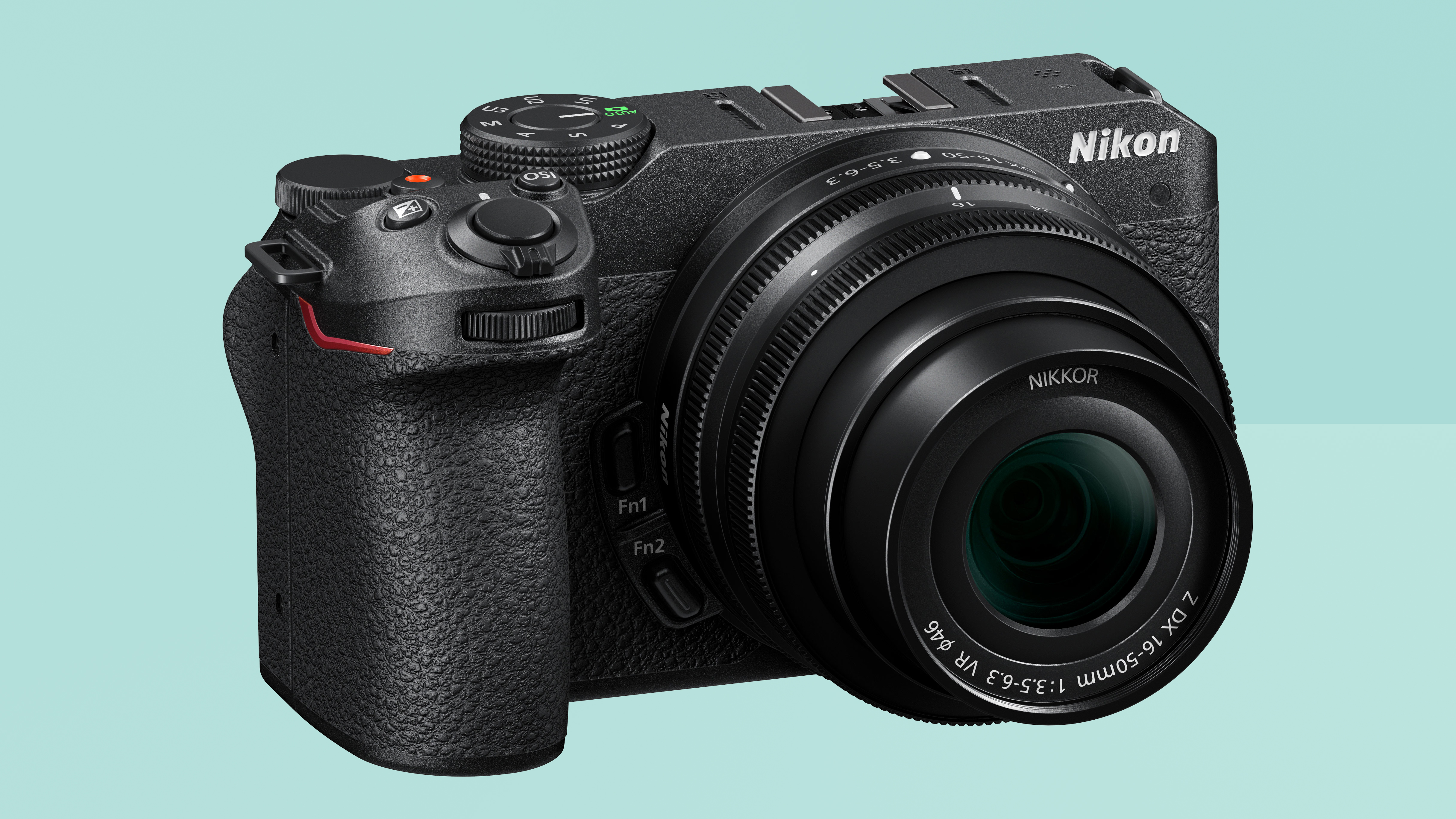
What’s welcome here is the usual Nikon attention to detail, responsive performance and robust construction, with access to a very wide, well-supported system of lenses and accessories, not only from Nikon but third party manufacturers too. It's the most affordable mirrorless camera Nikon offers and provides a relatively fuss-free and intuitive entry point.
-
+
Attention to detail
-
+
Responsive performance
-
+
Robust construction
-
+
Great ecosystem
-
+
Affordable
-
+
Easy to use
-
-
Can get expensive with kits and extras
-
-
No eye-level viewfinder or integral flash
-
-
Pretty large
Why you can trust T3

Think photography and Nikon immediately pop into our heads, right up there with Canon and latterly Sony as exemplar photographic brands. While those rivals have been releasing mirrorless cameras adopted by the video blogging fraternity for quite some time – with Sony, in particular, introducing dedicated ‘vlogging’ models – Nikon has trailed in their wake. Therefore the Nikon Z 30, which its manufacturer is calling a ‘video first’ camera – in that it’s prioritised its practicalities for recording rather than shooting stills alone – feels both welcome and long overdue.
As the ‘Z’ in the model name suggests, this latest iteration forms part of Nikon’s small but growing compact mirrorless camera family. Indeed it’s the manufacturer’s smallest and lightest example to date. But, while most ‘Z’ series releases to date have been largely aimed at enthusiasts and professionals, the Z 30 is being billed as a consumer-level ‘starter’ camera. That’s despite a body-only price of circa £700 before we’ve even thought about adding lenses and accessories. The best value Z 30 deal from the manufacturer is, in our eyes, therefore the one that also bundles a 16-50mm compact zoom lens, a remote control plus SmallRig branded tripod and wind muff. But even that requires nearly a grand being spent for the basics before we can get recording and posting. So here we’re examining how the Z 30 body plus 16-50mm lens fare alone.
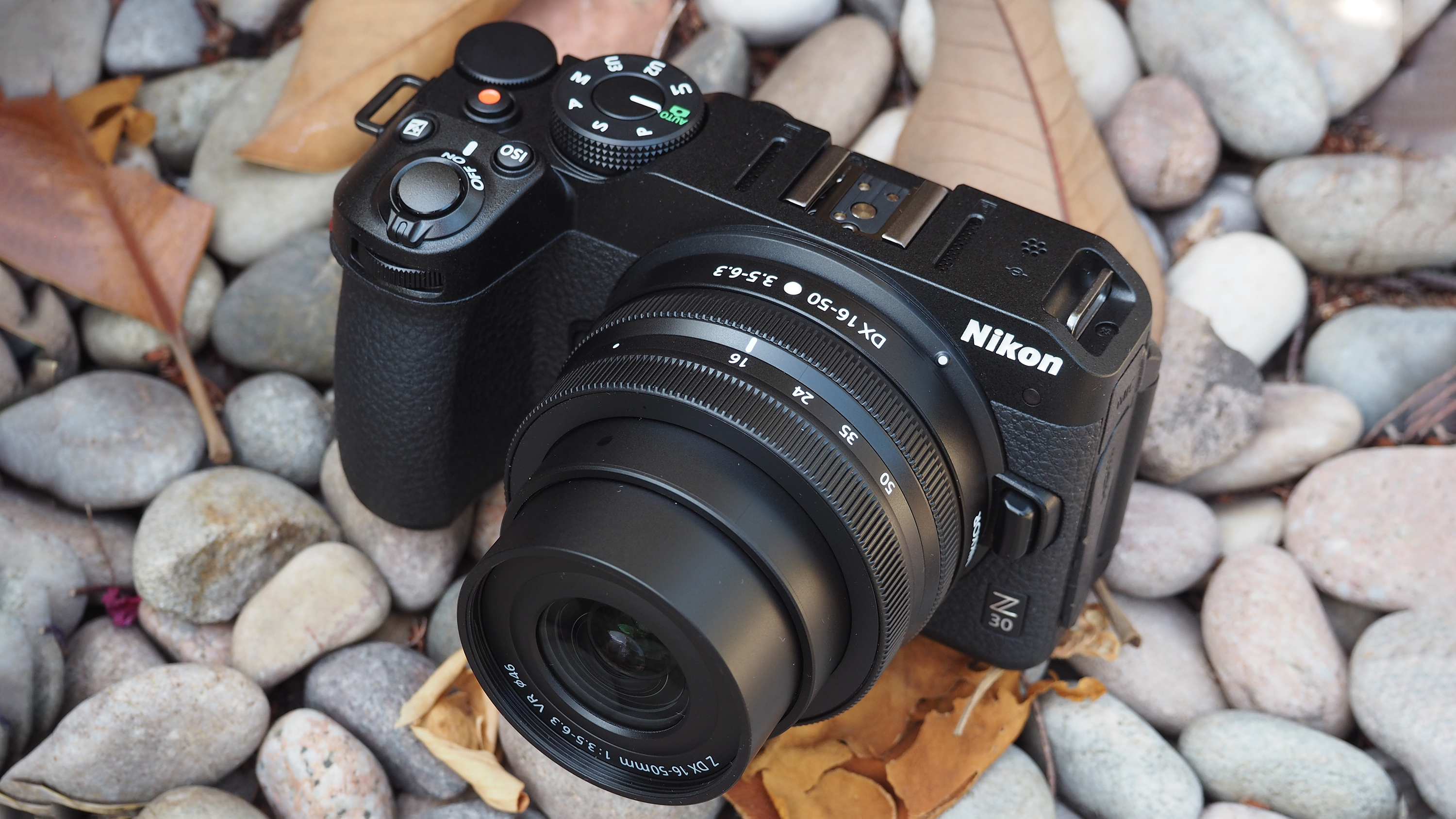
Nikon Z30 review: Design & Handling
Despite wanting to appeal to online influencers, its manufacturer hasn’t chucked the baby out with the bathwater when it comes to the design, look and feel of the Nikon Z 30. We’re not getting the Z 30 in baby blue, pink or lilac for example – it’s still regulation black. Colour aside, it also blends in with the others in its series in resembling an SLR camera that’s been slightly miniaturised. Despite the smaller size, the operation doesn’t feel too compromised – in that it maintains DSLR-like quick response times and levels of performance.
We’re pleased that, despite the elongated slender design, that Nikon has chosen to not compromise on the hand grip, which is reassuringly chunky enough to support longer lenses than the bundled 16-50mm zoom at any point. A quick note re: said zoom – the compact lens has to be first unlocked and fully unfurled before picture or taking or video taking can commence, so that adds a couple of seconds on to the start-up process.
A rechargeable EN-EL25 lithium-ion battery is supplied with the camera, along with a USB lead that allows its battery to be charged via any available USB port. We can of course stick a compatible mains plug on the end – not supplied – and alternatively charge it the conventional way. Battery life is good for around 330 shots, or 75 minutes of video.
Weighing a surprisingly 350g without lens, the Z 30 is surprisingly lightweight and manageable for all the none-more-black seriousness of its exterior styling and magnesium alloy construction. Given the audience for this camera, it’s less of a surprise that a 3-inch, 1040K dot resolution vari-angle LCD screen also features, which can be flipped outwards from the body to be viewable by whoever is in front of the lens.
What we don’t get, unexpectedly so at this price, is a built-in eye-level electronic viewfinder. But, given that Nikon is claiming the largest audience for this camera will be shooting video first and foremost, arguably that omission is less of an issue than it might otherwise be. Intuitively, the provided back screen is also a touch screen, with options kept simple, uncluttered and accessible. Plus, flip the backplate LCD towards us, and the camera will automatically go into selfie mode, switching from the previously captured image to show a view of whatever’s in front of the lens instead; so far, so good.
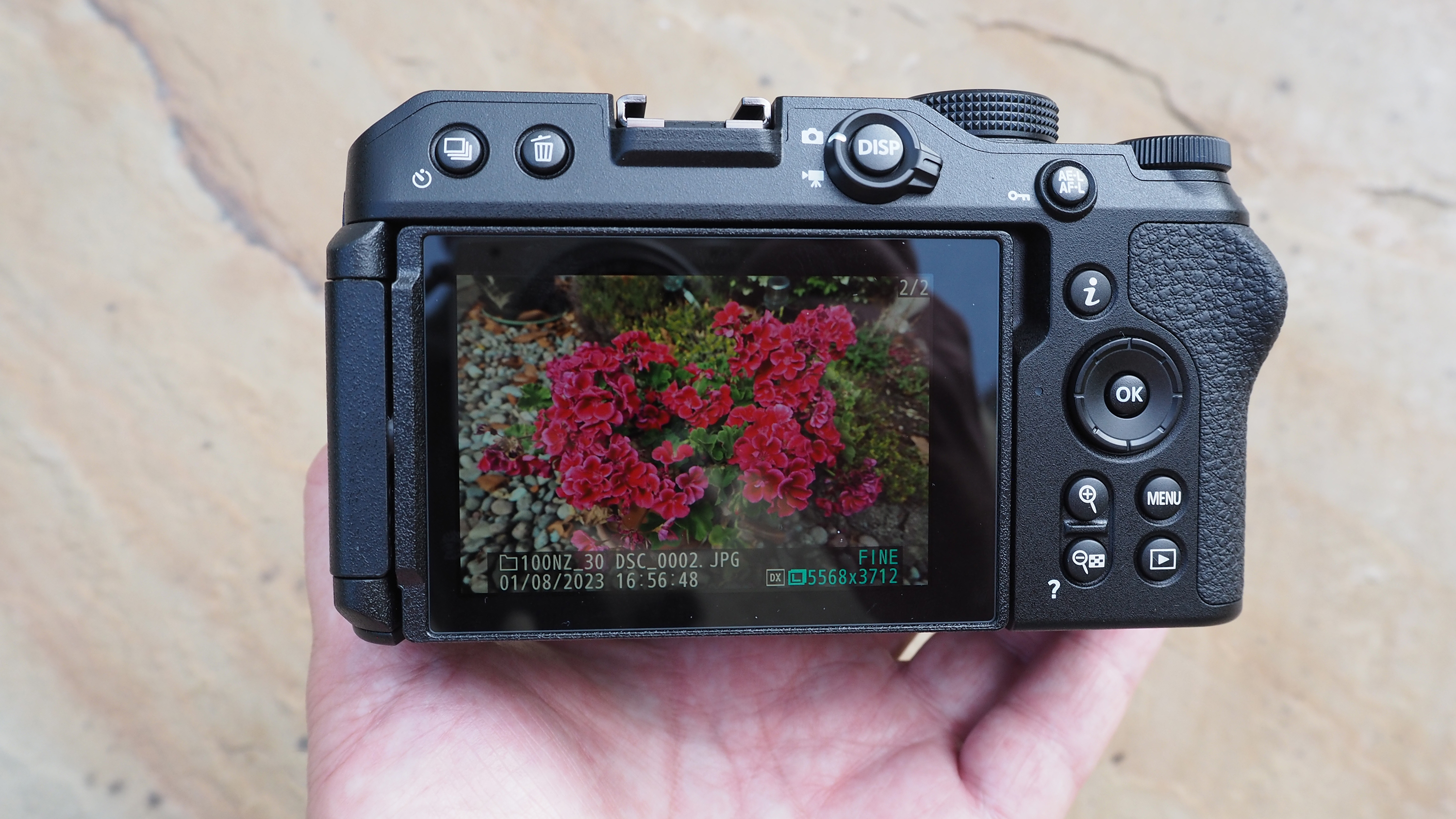
Nikon Z30 review: Features
While the Nikon Z 30’s stills photography features are not being as heavily spot-lit this time around, we’re still getting a 20.9 megapixel APS-C CMOS sensor at the heart of the new camera, similar to that found in Nikon’s existing Z 50 which sits just above the Z 30 in the manufacturer’s range. OK, so that’s smaller than the full-frame sensor found in the likes of Nikon’s range-topping Z 9 – but given the Z 30’s entry-level target market, a larger chip would have been overkill. And of course, that does still give us 4K video of up to 35 minutes duration, alongside Full HD capability of up to 125 mins. As expected, Wi-Fi and Bluetooth connectivity options feature, as do hyper-sensitive built-in microphones, plus there is the ability to add an external mic to boost sound quality further and give a professional edge to our videos.
One thing the Nikon Z 30 does miss out on is any built-in or pop-up flash – which seems a little odd given that this is a consumer-level camera. However, a vacant hotshoe is provided on the camera’s top plate for adding such accessories if desired. Plus, when shooting video indoors, or in the studio, we’ll probably be opting for a separate LED ring light for more professional and eye-catching results anyway.
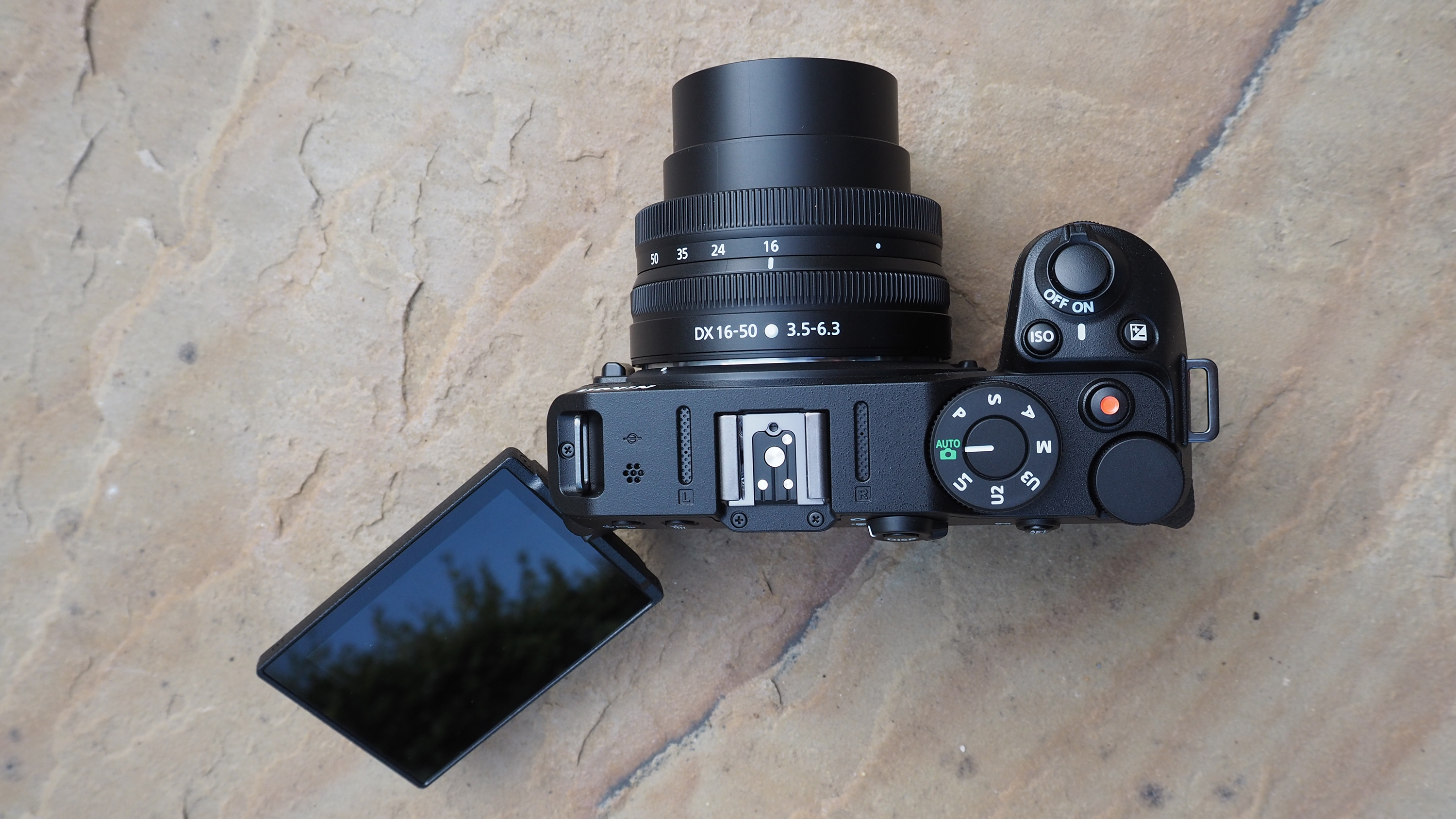
Nikon Z30 review: Performance
The headline features to share here performance-wise are the ability to shoot 4K resolution video at up to 30fps for 35 minutes, or an uninterrupted sequence of Full HD up to 125 minutes in duration, dependent on available battery life. Nevertheless, suitability is suggested for even the most loquacious of influencers. Obviously, we’ll also need a high-capacity media card to be able to do so – fortunately, the Nikon Z 30 favours the commonly available SD/SDHC/SDXC card, rather than the more specialised media favoured by the Z 30’s pricier fast shooting siblings in the Z 6 II, Z 7 II or aforementioned Z 9. Response times are sufficiently speedy in that we are able to focus completely on the subject before the lens rather than what the camera is doing.
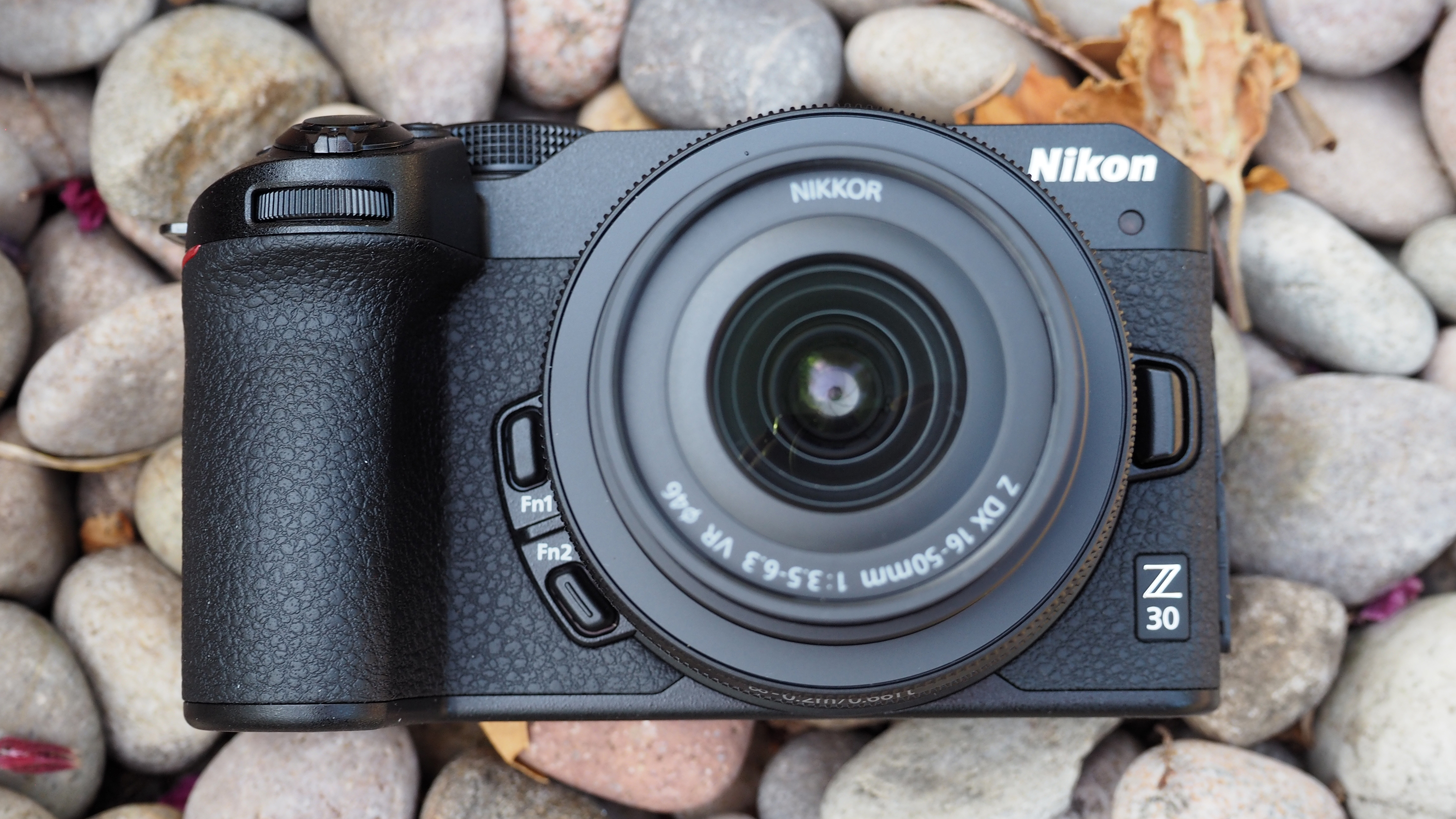
Image samples
The Nikon Z 30 is being pitched as able to create a quality of image that your smartphone can’t – and if it doesn’t live up to that billing, why else would we want the added expense?
Happily then, the Nikon Z 30 delivers bright and vibrant colours that really pop on-screen, the jack-of-all-trades compact zoom lens capable of delivering bags of detail, even into the shadows and corners of the frame, though if we’re being particularly picky a prime lens with a fixed focal length would be an even better option for specific tasks, such as portraiture. Nevertheless, this is a very capable option to begin with.
If anything this Nikon will slightly underexpose the shot to preserve detail – but in such cases, the image can be brightened and saturation subtly increased in the image-editing package of our choice. And all said and done, we’d rather bias more detail to play with than less.
Video-wise, again we’re getting plenty of colour and detail, and sound is similarly impressive via the built-in stereo microphones, though adding an optional external mic, for which a port is presented on the camera’s flank, will up the self-broadcast quality further. Nevertheless in our estimation the basic set-up we’re provided with out of the box – camera and lens alone – is suitable for creating a YouTube video with for starters, with the ability to add optional extras to raise our level of professionalism as we go along.

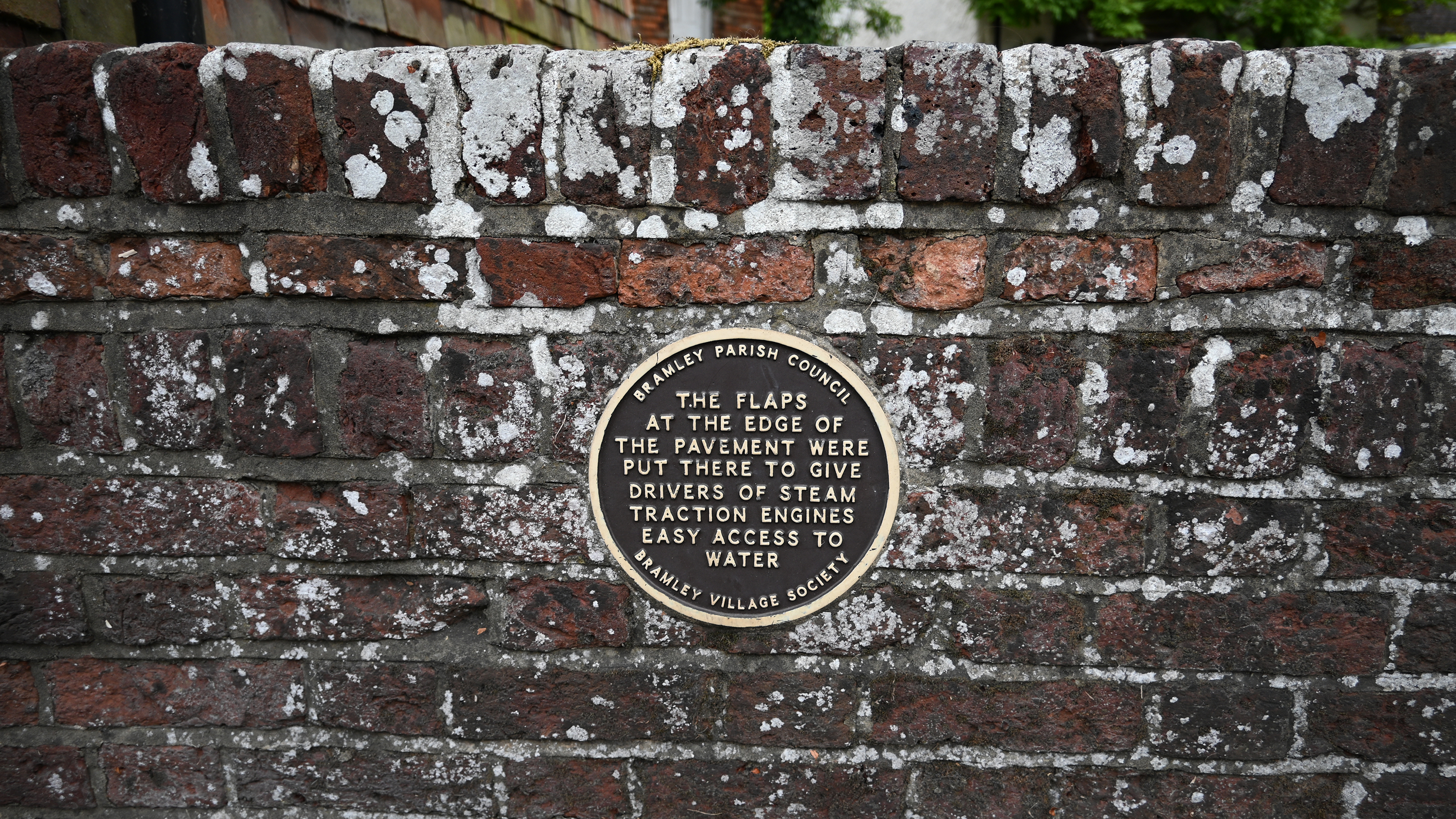
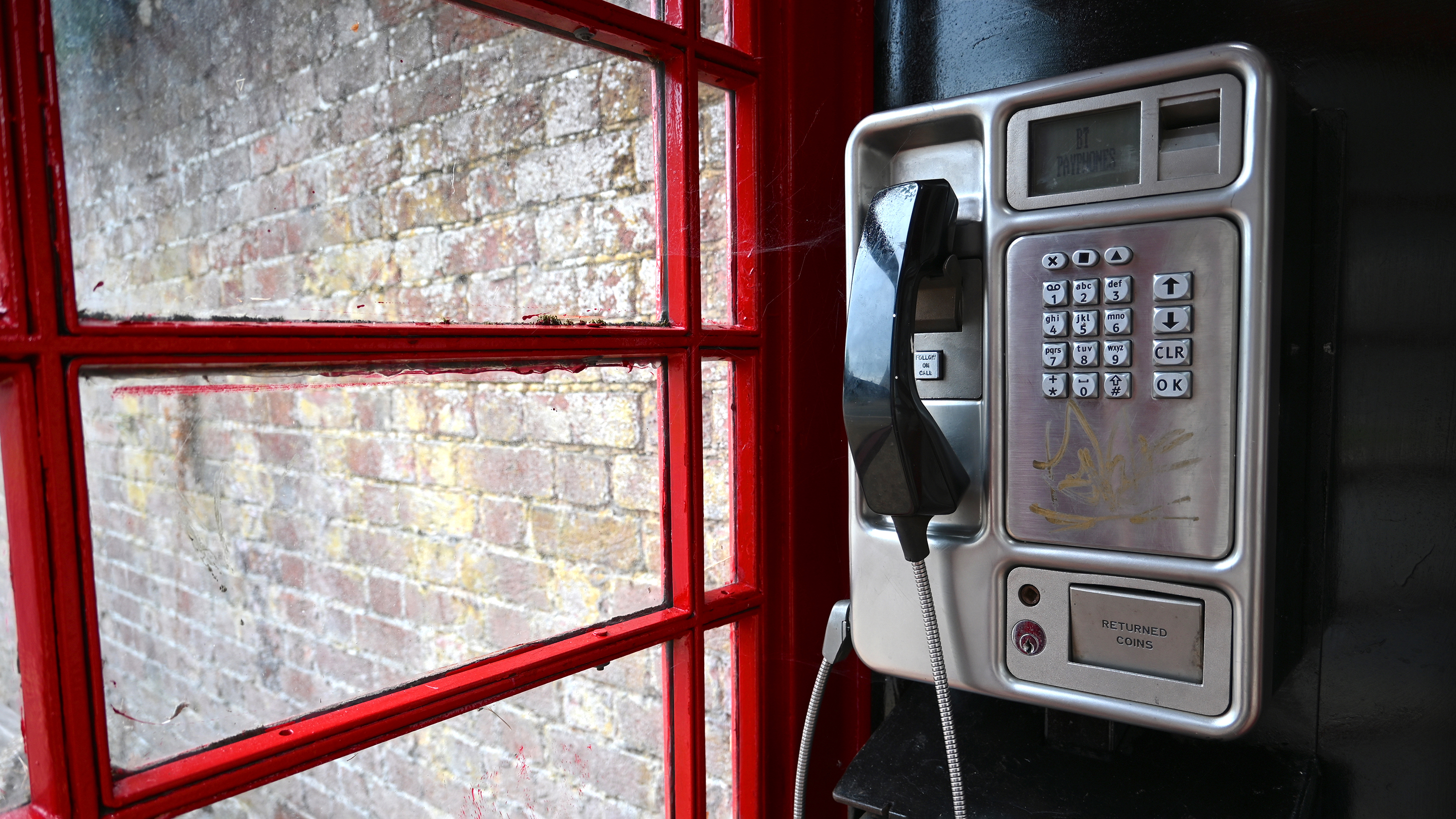






Nikon Z30 review: Verdict
Though the black livery makes the Nikon Z 30 appear a serious contender for the photo enthusiast, there’s little here that the absolute beginner may find off-putting. And while it may be small-ish, the camera is not insubstantial. Controls are large and chunky and their function is mostly obvious, while the back plate LCD, in being able to be pulled outwards from the body and twisted and swivelled, means that a variety of creative shooting angles are possible – whether we’re talking video or stills.
OK, so we’re missing an eye-level viewfinder here and also a built-in flash, which is more surprising, but given that Nikon is pitching this product at online savvy ‘content creators’, rather than dedicated photographers, such space-saving omissions won’t be deal breakers. Image and sound quality straight out of the box is impressive, making this an option worth further investigation for anyone wanting to get started in creating more professional-looking and sounding videos for social media and more. The ability to add an almost unlimited supply of optional extras further ensures this one is a potential investment for the long run. Or at least as long as those social media ‘likes’ and re-posts keep coming.
Sign up to the T3 newsletter for smarter living straight to your inbox
Get all the latest news, reviews, deals and buying guides on gorgeous tech, home and active products from the T3 experts
Gavin Stoker has been writing about photography and technology for the past 20 years. He currently edits the trade magazine British Photographic Industry News - BPI News for short - which is a member of TIPA, the international Technical Imaging Press Association.
-
 Warning: Ciele’s refreshed Elite Collection may cause excessive garment envy on race day
Warning: Ciele’s refreshed Elite Collection may cause excessive garment envy on race dayFlex on your run crew with Ciele’s latest drop
By Matt Kollat Published
-
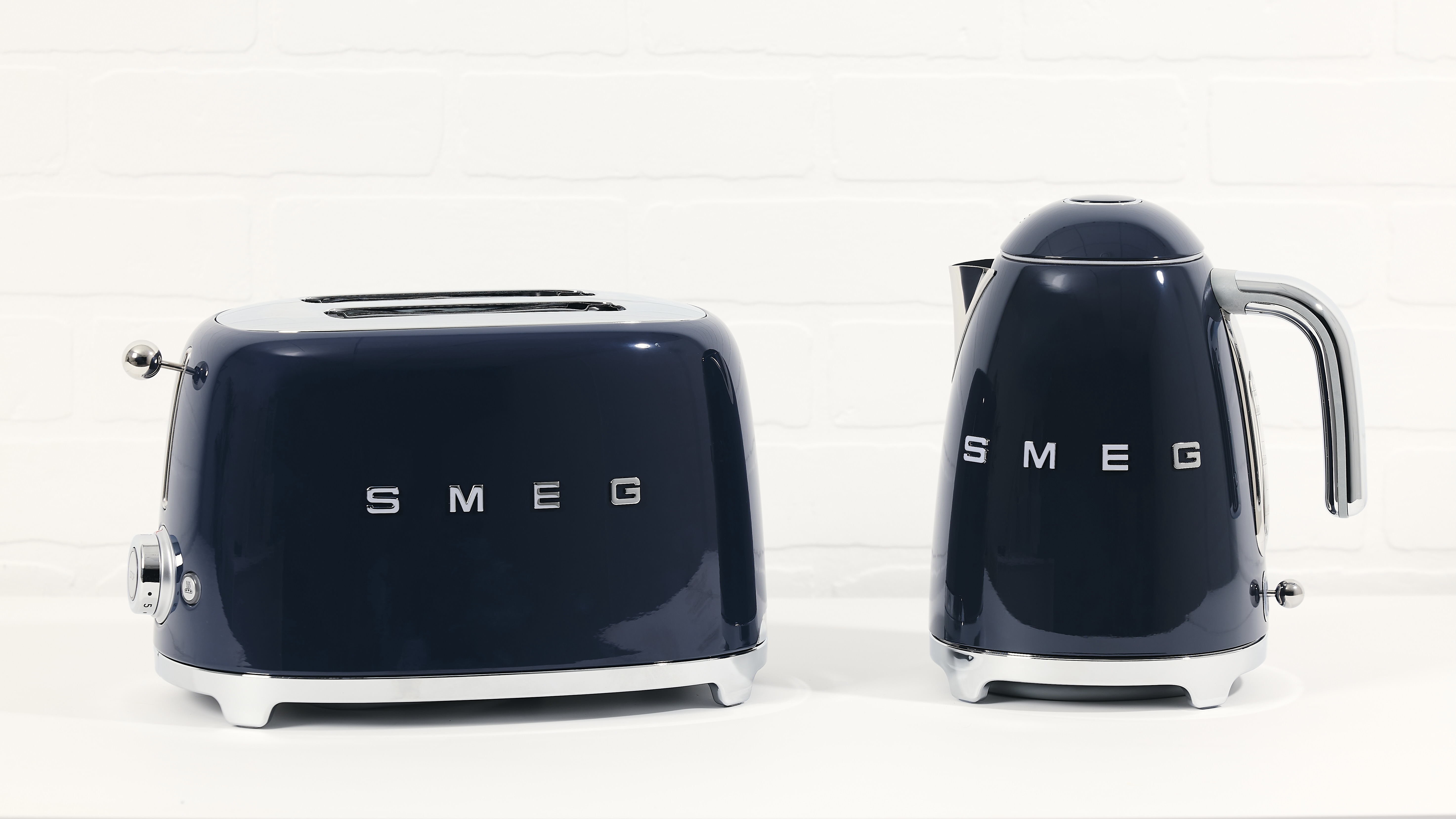 Smeg adds a touch of navy sophistication to its iconic breakfast set
Smeg adds a touch of navy sophistication to its iconic breakfast setIt's a minimalist's dream
By Lizzie Wilmot Published
-
 My most anticipated Netflix movie of the year gets a wild new trailer
My most anticipated Netflix movie of the year gets a wild new trailerHavoc looks pretty unbelievable
By Max Freeman-Mills Published